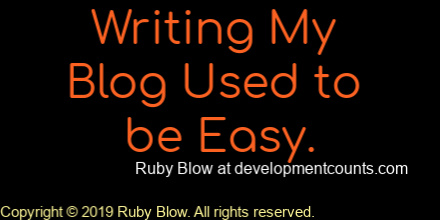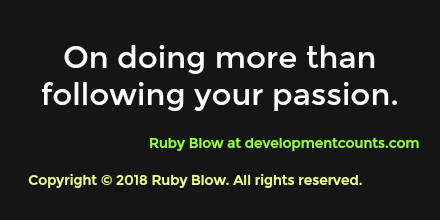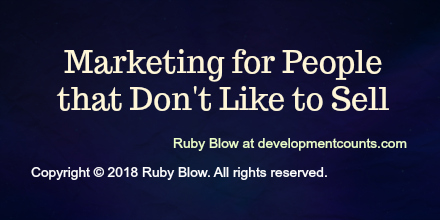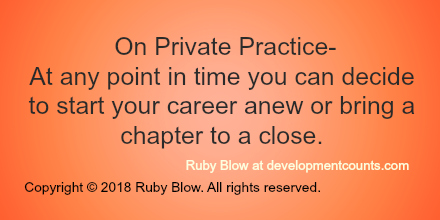Writing a Blog
I am not a writing expert. I am just a person who writes regularly. What I do know is that writing that pulls people in can be deeply personal. When you write effectively it will resonate with the reader. In some cases, it might feel like their very own thoughts.
One of the key questions I consider before writing each blog post is: “How much does this matter to me?”
I experience writing as a place where the personal and the professional intersect. For me, the decision to write about something publicly is a personal endeavor that has professional impact.
Have You Been Considering Writing a Blog?
If you have been considering writing a blog, I suggest that you consider “why?”
- What is the purpose?
- What are you hoping to give?
- What are you hoping to receive?
- Do you have something to say?
- Do you want to share your thoughts with the people you know?
- What about sharing your thoughts with strangers?
I enjoy writing my blog each week. However, it is a lengthy process. It takes me 3-4 hours to complete my weekly blog. I am sure that some people write theirs in a shorter period of time. Knowing why you are writing it may help you dedicate the time it requires.
Public, Private, Secret, Sacred
If you are thinking about sharing your writing…these are some concepts to consider:
- How you feel about being “Public” –
- How comfortable are you with the possibility of being a public figure?
- How do you feel about people knowing more about who you are based on what you think, write, and share?
- What do you think about the fact that if people choose to read what you write, that they are potentially getting to know you without having met you in person?
- How do you feel about eliciting negative feedback, no feedback or positive feedback?
- Privacy – what are your values and tendencies regarding privacy ?
- I think of privacy as being your right to be able to manage and control your personal information that can be accessed by others.
- When someone violates your privacy, typically they have sought information about you (maybe even without your consent) and intruded on your ability to determine when and whether or not that information will be shared.
- In many ways the decision to write a blog and make it public is a decision to reduce certain elements of your privacy. All of this is determined by what you choose to share in your writing. However, anything you write reveals something about who you are.
- Secrecy – Many people grow up being taught that “What happens in the family…stays in the family.”
- One could argue that families have the right to privacy. However, what about the individual’s right to seek support? What about an individual’s right to discuss their experiences with those outside of the family, particularly when the family is not safe?
- I think about the root words in “secrecy,” which have to do with “keeping separate.” There are elements of secrecy that at times can keep people vulnerable to exploitation.
- If you are keeping a secret…you are in essence agreeing not to betray someone’s trust…even if it means betraying yourself. There is a reason that those who treat addiction often say that “secrets keep people sick.”
- Depending upon your topics and content…you may feel that what you want to write about is revealing secrets about yourself or others.
- Sacred – determining what is sacred is an important element to writing and sharing your thoughts publicly.
- I think something is sacred if it is at the core of who you are and if the exposure of that core essence without the utmost respect might break you emotionally or spiritually.
- Generally speaking, if what you plan to write about makes you feel anxious to receive feedback from others, it is possibly something that is sacred to you.
- However, if you feel that way about everything, if everything is sacred…you may be overapplying the concept and it may be more beneficial to keep your writing private.
- Perhaps only share with a few select people. This is the type of writing often given as a therapeutic assignment.
What Should You Write About?
I write about what is on my mind. These are some of the things that I observe mentally throughout the week:
- thinking about how something impacts me personally;
- thinking about how something impacts my profession or people that I know;
- thinking about what things mean;
- thinking about why something is the way it is;
- thinking about the origins of something;
- thinking about the moral, ethical and legal implications of an event;
- thinking about how I feel;
- thinking about how others feel;
- thinking about what to say or do next;
- thinking about what I am thinking and last but not least…
- thinking about how one thing I might say or do can impact the person I am engaged with at the time…and so on.
In therapy we refer to this as the “meta” level…when we are monitoring our process with others and our own internal dialogue. In essence, this involves “thinking about what you are thinking and observing.”
Writing is a Discipline
Lastly, consider developing a discipline around writing. I find it to be similar to working out. I enjoy working out. Movement helps me feel better physically, be more energetic and to think clearly. When I am in the habit of working out daily, it feels as natural as eating food every day. However when I get out of sync…I feel the difference immediately.
At your core, if you are a writer you will benefit from writing. You will benefit from organizing your thoughts and articulating them. If you are a writer and you don’t write (whether it is a private journal, poetry or social media posts), you are risking not having access to the full expression of yourself.
If that last phrase seems melodramatic to you, you are probably not a writer at your core. It does not mean that shouldn’t write a blog or whatever you want. However in my experience, it means that you will be less compelled and engaged when writing. Writing will be a chore and not an expression of self.
If you are not a writer, you might be a dancer, singer, reader, athlete, chef, artist or enjoy some other creative endeavor. Be open to what you naturally are… don’t force yourself to write.
Copyright © 2016 Ruby Blow. All rights reserved.
Share your thoughts on Linkedin, Facebook, Twitter or log in to one of your accounts below to comment. Subscribe to my YouTube channel.





